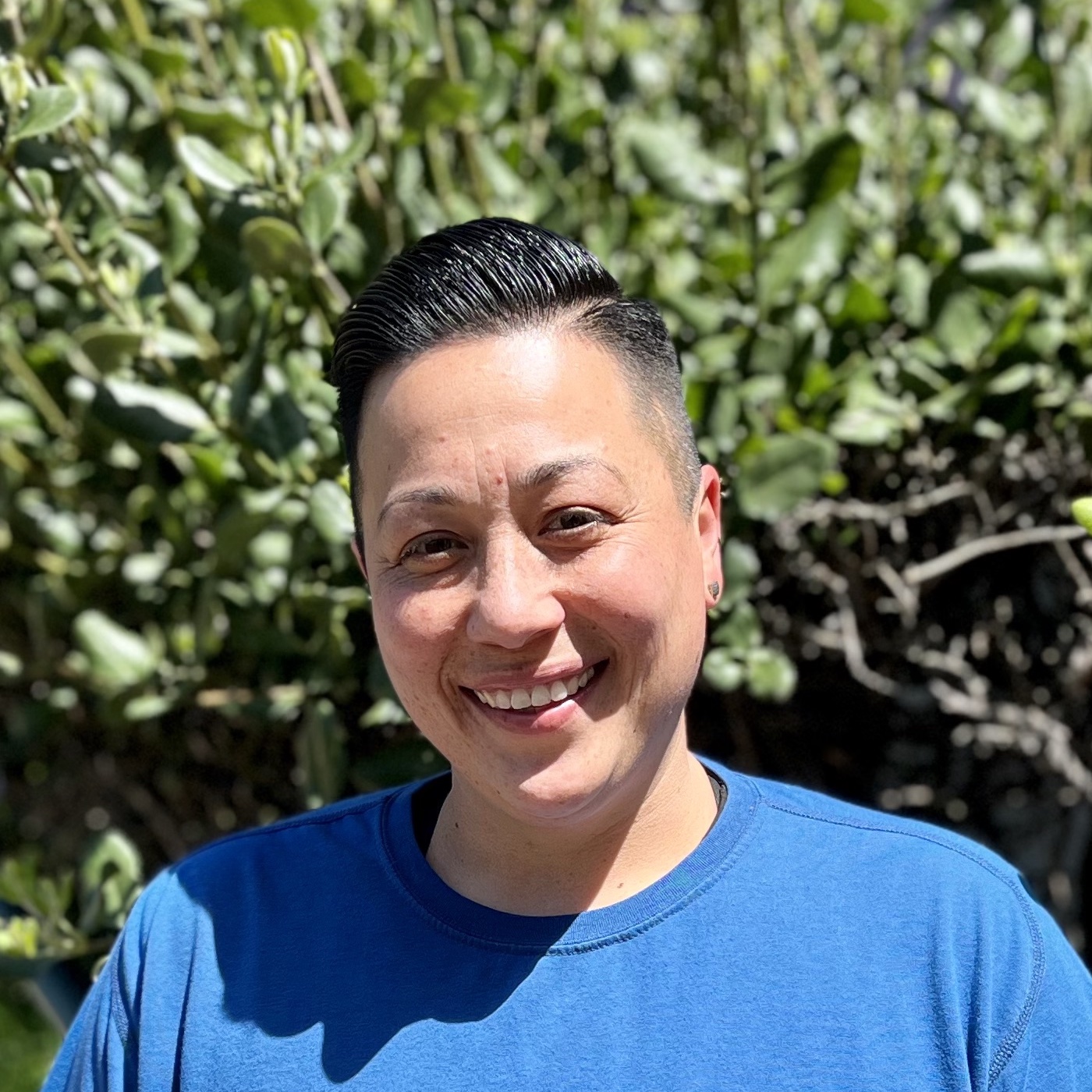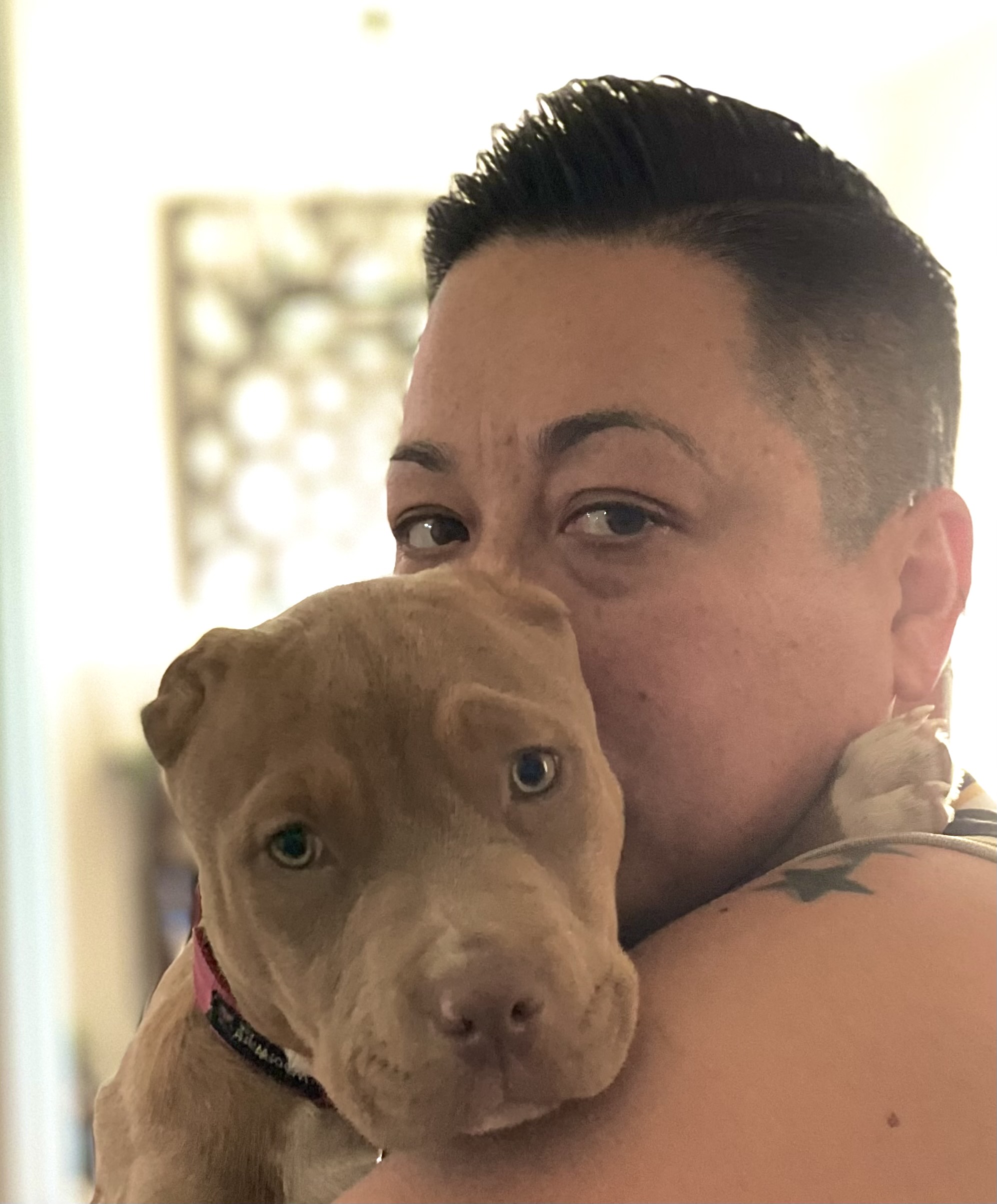 Kristin Carrillo’s many tasks around the ALS may be a divergence from her degree in psychology and her previous life as a softball player, but the connecting thread is the relationships she’s developed with the people around her. Find out more about her work as a material specialist and how she supports the scientific mission of the ALS.
Kristin Carrillo’s many tasks around the ALS may be a divergence from her degree in psychology and her previous life as a softball player, but the connecting thread is the relationships she’s developed with the people around her. Find out more about her work as a material specialist and how she supports the scientific mission of the ALS.
What is your role at the ALS?
It depends on who needs what. I just worked with someone who needed to ship one-of-a-kind equipment. It needed to reach Argonne National Laboratory by a certain date and only by air freight. I saw that customer almost every day for about a few weeks. In material handling, we do many tasks—locating/delivering packages like ice packages and dewars, and we do office moves; I handle the water for Buildings 15, 80, and 6; and we’re also cleaning up Building 53 in preparation for ALS-U. I work closely with Central Receiving and Shipping, since I know the system there and at the ALS. I’m also on the Building Emergency Team, and I’ve been on a lot of hiring panels recently.
What path led you to where you are today?
I started in Berkeley Lab’s Facilities Division in Central Receiving in 2015. I heard great things about ALS the whole time, and I knew Clency Easterling [recently retired ALS senior material specialist], who said, “Come be my material handler.” So, I did a lateral move over to the ALS.
Central Receiving was great because you deal with every department within the Lab, but at the ALS, I get to work hand in hand with the scientists. I have a degree in psychology, but the scientific research part is above my bandwidth. The scientists tell me what they’re doing, and I may not understand everything, but I help in other ways. I’m geared toward customer service.
Clency told me about delivering the dewars for Jennifer Doudna, who won the Nobel Prize. I thought, “I would be happy with being a little part of that.” We’re all here for the same reason: helping science move forward. I didn’t think science would be part of my everyday life like it is now, but I can’t imagine being anywhere else.
How did you become interested in psychology?
It grew out of trying to understand people’s perspectives. I grew up in a biracial family—my mom’s Sicilian and my dad’s Filipino, and coming out as a lesbian was a bit more okay than the generations before me, but it was hard. I was 17, right when you go through all these emotions. I didn’t know how my parents would handle it. They may not have handled it the best, but what college did for me was help me see their perspective. My parents didn’t have experience in being parents at such a young age, but at the time, I felt they should’ve known how to handle this better. Then I got older and realized they didn’t necessarily have the tools to know how to handle the situation at the time. My wife loves the way I am with my family now because we’ve had the hard conversations.
When I started learning psychology, it helped change my perspective on the way people see life. What affects you may not affect me, and that’s interesting!
Did you consider a career in psychology?
I like listening to people, helping them in their life, and understanding a different perspective, but I prefer hands-on work. After I ended my softball career, I started working in shipping and receiving during college, and I really liked it.
Wait, you had a softball career?
When I was about nine, I brought a flier home and said, “I want to play sports!” I’d broken my wrist but I had tryouts, and they didn’t know how I was going to try out with a cast on. Well…I did it! My sister and I started playing softball when we were nine and ten. By the time I was 11 we were playing year-round competitive fastpitch softball, and in high school freshman year, I played varsity softball and varsity basketball.
I was a catcher. My sister was my shortstop, and she’s hearing impaired. I could look at her down the field and just give her a look, and she knew if I was going to throw the ball to third base to pick somebody off. We both got scholarships to play softball at different universities, and my sister is still living the dream. She goes to Vegas for Nationals for slowpitch softball.
My parents didn’t get a college education, but they worked really hard so their kids could. My dad drove us an hour from Pittsburg to Stockton for practice multiple days a week after school. Their mentality was: go to school, get a degree, and do what makes you happy. And all three of us did that—my brother played volleyball. He’s 6’4”, and I’m 5’4”.

What do you like to do in your free time?
I do a lot of DIY house projects and car repairs. My wife says, “Oh, you can do so much stuff. Here, put up some door moldings and some crown molding!” We have two puppies—Luna is three years old, and Peanut is three months. I’m not sure if all pit bulls are like this, but all the pits we’ve had love to swim, so we take them to my parents’ pool. The older one loves to be outdoors, and she even tried to help me put in artificial turf.
The little one is feisty and sassy, so sometimes, I take the older one out to give her a break. As soon as she comes back, though, she’s looking for the little one again.